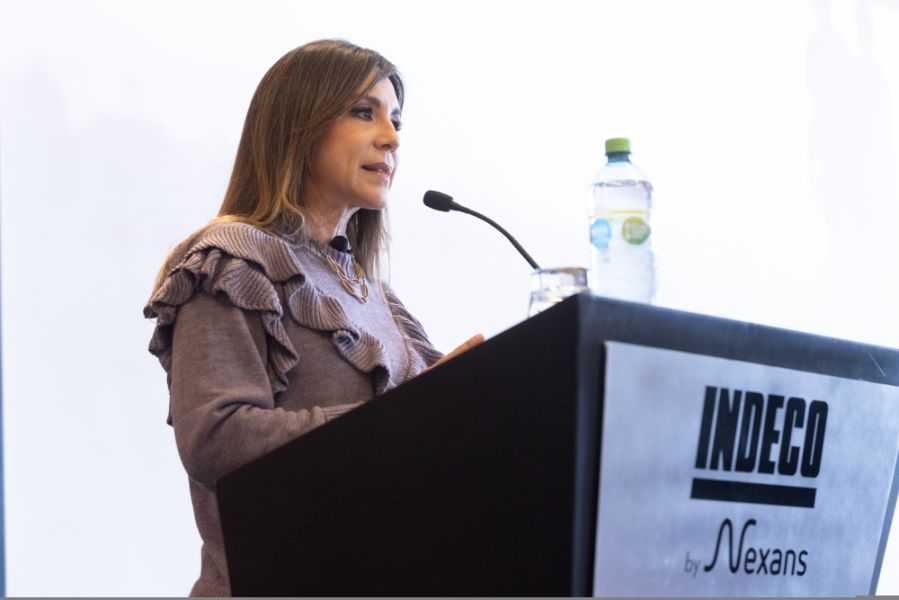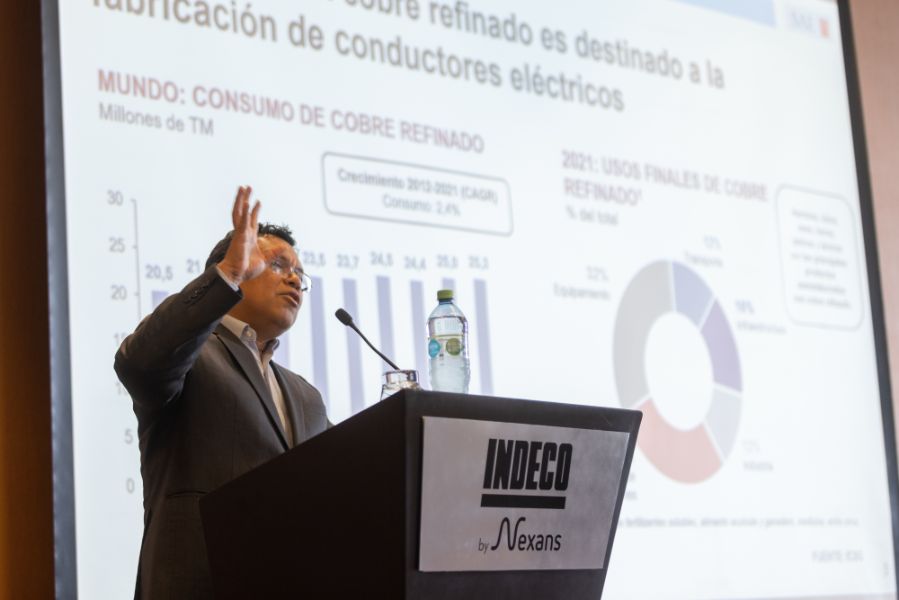- Markets
- Catalogue
- Services
- Tools & Resources
- Downloads
- Company
- Newsroom
-
Nexans Insights
- Nexans Insights
-
Blog Posts
- Overview
- Growing demand for copper and its future
- Electromobility: the road to building an increasingly sustainable transport system
- Guide to Prevent Fires and Accidents at Home (only in Spanish)
- Ten technologies to electrify the future: Electrical and Fire Safety
- Big data & AI
- IoT
- Unveiling innovations transforming the industry
- Transforming buildings industry with 3D printing and modular construction
- The path to effective fire safety in buildings
- Powering the digital change
- Unleashing the power of DC buildings
- Sustainable buildings for a brighter future
- Industry 1, 2, 3, 4... and 5.0
- Nexans copper odyssey
- Limitations of aluminium as an electrical conductor in residential installations
- Find Distributors
- Search
- Contact us
- Compare
- Sign in
Sustainability
"Copper for Tomorrow": for a more sustainable energy future
Nov 4, 2022
Lima, November 2022 – If emissions targets are to be met, nearly everything that currently runs on fossil fuels will have to switch to electricity. As a result, demand for copper will grow at a rate never seen before in history.
That is why INDECO by Nexans, a leading electrical conductor manufacturing company in Peru, held the "Copper for Tomorrow" forum to discuss the role of copper in the new era of sustainable electrification and its importance in building a decarbonized economy.
Moderated by Journalist Jimena de la Quintana, the panel was comprised of industry leaders and experts such as Roque Benavides, Chairman of the Board of Directors of Compañía de Minas Buenaventura S.A.A; Julia Torreblanca, Vice President of Corporate Affairs of Sociedad Minera Cerro Verde; Beatriz de la Vega, Tax Consultancy Partner and Leader of Energy and Natural Resources at KPMG; and Alex García, General Manager of INDECO by Nexans.
“ Peru and Chile are responsible for 40% of global copper production, which is why Peru has an extraordinary opportunity to grow their mining industry as the demand for copper increases. Governments, companies, and communities all have the responsibility to work together and benefit the country as a whole. ”
Roque Benavides
CHAIRMAN OF THE BOARD OF DIRECTORS OF COMPAÑÍA DE MINAS BUENAVENTURA S.A.A.Julia Torreblanca commented that companies must prioritize the operational sustainability of their copper extraction if they want to be a responsible player across the entire value chain. Efficiency and commitment will translate from planning all the way to final sale. "While Peru is being asked to play a more active role, there is a need for policies that promote exploration in the country and for companies to focus on the distribution and transparency of timely information through innovative channels. The main objective is sustainability over time," she said.
Furthermore, Beatriz Vega mentioned that the energy transition requires the automation of key processes, alignment with policies focused on corporate social responsibility, and digitalization of important data. In addition, optimizing human resources and taking advantage of business opportunities, such as entrepreneurship, will also improve efficiency. "There are regulations that must be complied with to continue working with copper. In Peru, businesses must allocate greater importance to climate change and sustainability, both of which will have a large economic impact in the long term."
Expert Víctor Albuquerque, Director of Sector Analysis of APOYO Consulting, indicated that about 75% of the world's copper consumption is destined for electric conductors and that the volume of copper used in electric cars will be the main impulse of demand in the long term.
Regarding the energy transition in Peru, he further stressed that the country will also need to adapt to the reduction of carbon emissions through power generation plants, such as the Punta Lomitas wind power plant, where Indeco by Nexans is in charge of the medium voltage network.
“ Companies in this sector are committed to anticipating the possibility that supply will not be able to meet demand and therefore, there must be a focus on the circular economy. As a group, Nexans has anticipated and adapted to the environment by focusing on recycling early on. In 2020, Indeco by Nexans recycled 135 tons of copper from what the same factory generated. Additionally, in 2021, 320 tons of cable was recycled.
This year's goal is much more ambitious. ”
Alex García
General Manager of INDECO by NexansVíctor Albuquerque said in closing that currently in Peru, 70% of residential construction is informal, so much of the effort should focus on the customer and keep educating those customers on the importance of climate change and sustainability.
Our websites
Select your country to find our products and solutions
-
Africa
- Africa
- Ghana
- Ivory Coast
- Morocco
- North West Africa
- Americas
- Asia
- Europe
- Oceania

.png/jcr:content/MicrosoftTeams-image%20(13).png)

.png0/jcr:content/MicrosoftTeams-image%20(14).png)

